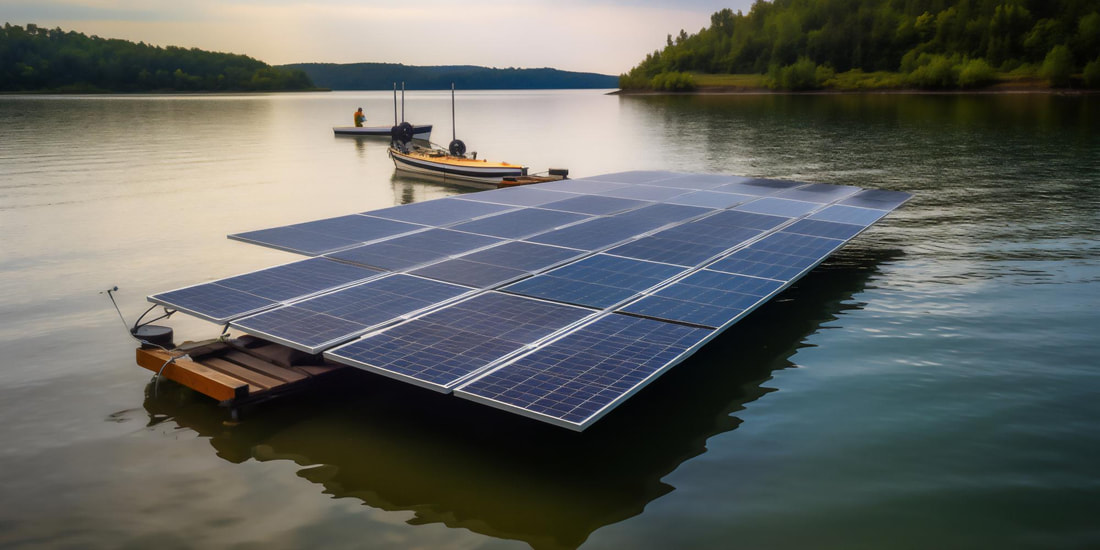Harnessing the Power of Small Streams: Exploring the Pros and Cons of Micro Hydro Power Systems7/23/2023
Micro hydro power systems harness the energy potential of small streams to generate electricity efficiently and sustainably. This article explores the pros and cons of micro hydropower systems, shedding light on their benefits, limitations, and considerations for successful implementation. 1. What is Micro Hydro Power?Micro hydro power uses water from small streams or rivers to generate electricity. Micro hydro systems are designed for local or community-level power generation, unlike large-scale hydropower plants. These systems typically produce up to 100 kilowatts of electricity and can provide a reliable and renewable energy source. 2. Advantages of Micro Hydro Power Systems2.1 Efficient and Reliable Energy Source Micro hydro systems have several advantages when it comes to energy generation. They require a small amount of flow or a drop as low as two feet to generate electricity. With as little as two gallons per minute, micro hydro systems can deliver electricity to locations up to a mile away. Moreover, they offer a continuous supply of electrical energy, making them highly reliable compared to other small-scale renewable technologies. 2.2 Low Environmental Impact One of the significant benefits of micro hydropower systems is their minimal environmental impact. These systems function as "run-of-river" systems, meaning that the water used for electricity generation is directed back into the stream with minimal disruption to the surrounding ecology. Unlike large-scale dams, micro hydro systems do not require the construction of reservoirs, further reducing their ecological footprint. 2.3 Cost-Effectiveness Building a small-scale hydropower system can be a cost-effective energy solution. The cost varies depending on site requirements and location but ranges from $1,000 to $20,000. Additionally, the maintenance fees for micro hydro systems are relatively small compared to other technologies, making them financially viable in the long run. 2.4 Power Generation in Remote Areas Micro hydro power systems hold immense potential for supplying electricity to remote areas. Their low-cost versatility and longevity make them suitable for manufacturing and implementation in developing countries. By harnessing the power of small streams, micro hydro systems can bring much-needed electricity to small communities and villages, improving their quality of life. 3. Disadvantages of Micro Hydro Power Systems3.1 Site Requirements and Limitations
The success of a micro hydropower system heavily relies on suitable site characteristics. Factors such as the distance from the power source to the location of energy demand, stream size, flow rate, output, and drop must be carefully considered. Not all areas may have the ideal conditions for efficient power generation through micro hydro systems. 3.2 Seasonal Variations In many locations, micro hydropower output may fluctuate seasonally. During the summer, the power output may decrease when streams tend to have lower flow rates. Adequate planning and research are essential to ensure energy requirements are met even during low-flow periods. 3.3 Maintenance Considerations While maintenance fees for micro hydro systems are relatively low, proper maintenance is still necessary to ensure optimal performance. Components such as turbines, pumps, and generators require regular checks and potential repairs. It is essential to factor in the ongoing maintenance costs and availability of skilled technicians when considering micro hydropower systems. 3.4 Environmental Concerns Although micro hydro systems have a low environmental impact compared to other energy sources, they still require careful design and consideration of their potential effects on the local ecology. Streamwater diversion and other construction activities associated with micro hydro systems should be carried out responsibly to prevent any damaging impact on the ecosystem or civil infrastructure. Micro hydro power systems offer a promising solution for harnessing the power of small streams to generate clean and renewable energy. Their efficiency, reliability, low environmental impact, and cost-effectiveness make them an attractive option, particularly in remote areas. However, it is crucial to carefully evaluate site characteristics, understand seasonal variations, consider maintenance requirements, and address environmental concerns to implement micro hydropower systems successfully. Discover the power of flowing water with our Affordable Micro Hydro Power Systems. Take control of your energy generation and harness the renewable potential of water resources. Visit SEWS-Global today and start your journey towards sustainable and cost-effective electricity. Comments are closed.
|
- About
-
Services
- Solutions for Air Pollution
- Solutions for Climate Change
- Fruit and Vegetable Waste Management
- Glass Waste Management
- Global Sanitation & sustainability Project
- Sustainable Housing Solutions
- Water Management Solutions
- Flower Waste Management
- Plastic Waste Management
- Solar Energy Solutions
- Wind Energy Solutions
- Water Energy Solutions
- Sectors
- Consultation
- Internship
- Contact Us
- Blog
- About
-
Services
- Solutions for Air Pollution
- Solutions for Climate Change
- Fruit and Vegetable Waste Management
- Glass Waste Management
- Global Sanitation & sustainability Project
- Sustainable Housing Solutions
- Water Management Solutions
- Flower Waste Management
- Plastic Waste Management
- Solar Energy Solutions
- Wind Energy Solutions
- Water Energy Solutions
- Sectors
- Consultation
- Internship
- Contact Us
- Blog
|
Empowering Sustainable Solutions for a Better Tomorrow.
|
General Inquiries |
Navigate |
We acknowledge and pay our respects to the Wurundjeri people of the Kulin Nation, as the Elders and Traditional Owners
of the land on which our head office is located, and recognise their continuing connection to Country and community.
We also acknowledge and pay our respects to the Elders and Traditional Owners of the land on which our Canberra office stands.
of the land on which our head office is located, and recognise their continuing connection to Country and community.
We also acknowledge and pay our respects to the Elders and Traditional Owners of the land on which our Canberra office stands.


 RSS Feed
RSS Feed

